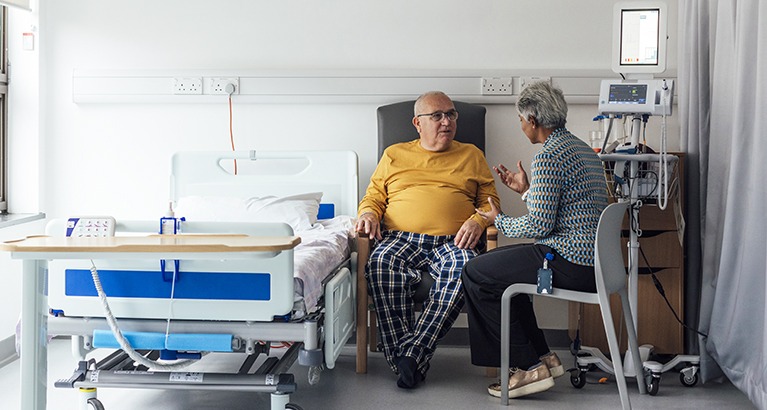
Missed appointments – patient ‘no-shows’ – have long plagued the health systems of countries around the world, and many of these no-shows are by patients whose initial appointments have been rescheduled by the clinic or the patient.
Non-attendance costs the NHS £650,000 a month
A major backlog in health care provision created by the COVID-19 (coronavirus) pandemic has placed even greater stress on hospitals, making no-shows even more expensive for health systems and taxpayers. A recent report from the National Health Service in the UK found that out of the 122 million appointments booked in 2021-2022, around 6.4% or 7.8 million appointments were missed – costing the NHS about £650,000 a month.
How patients rescheduling their own appointments improves turnout
A new study co-authored by Houyuan Jiang, Professor of Management Science at Cambridge Judge Business School, identifies a new method that could reduce notorious no-shows: encouraging patients to reschedule their own appointments when appointments are postponed by clinics (due to factors such as doctor illness or leave), rather than having the clinics themselves do the rescheduling.
“Compared with appointments rescheduled only by clinics, those rescheduled by patients following clinic-rescheduling were associated with reduced no-show risk,” says the study published in the ‘International Journal of Healthcare Management’.
“Based on these findings,” the authors say, we “suggest that the clinics actively contact patients when their appointments are rescheduled by the clinics and invite patients to reschedule the affected appointments again. We also recommend limiting the number of times a patient could reschedule an appointment to minimise the disruption in the appointment system.”
The welcome reduction in no-shows by appointments being rescheduled by patients diminished, however, when patients changed their appointments a greater number of times.
Previous research has looked at the reasons for no-show patients, with one study finding that 36% of patients forgot about the appointment, 17% faced work-related issues, and 9% were not notified about the appointment.
Even small reductions in no-shows can boost efficiency
“We launched the study to examine if non-attendance could be predicted and thus prevented, with the goal of saving time, money and ultimately lives through more efficient healthcare systems,” says Houyuan. “Even small reductions in no-shows could help many patients and hospitals achieve better outcomes.”
The study is based on 20,386 appointment records for 6,252 patients at a women and children’s hospital in Singapore (which the authors say has one of the world’s most advanced healthcare system) over a 34-month period from 2012 to 2014, prior to a change in the hospital’s booking system that could have contaminated the data.
Why do patients miss appointments?
The average no-show rate of the study population was 28.87%, with the study finding that the historical behaviour of patients related significantly with the no-show rate. In particular, the no-show rate increased when patients had more historical visits, more no-shows, and when their appointments were rescheduled more frequently. (Previous studies have shown mixed results regarding the effect of the number of previous visits on no-shows.)
Other causes of patient no-show from the data included Thursday appointments and longer waiting times for rescheduled appointments.
The study – entitled “Behavioural factors associated with patients’ nonattendance: a retrospective study in an outpatient specialty clinic at a women’s and children’s hospital in Singapore” – is co-authored by Yue Tang of Emory University in Atlanta, Professor Houyuan Jiang of Cambridge Judge Business School, Jingui Xie of Technical University of Munich, Zhichao Zheng of Singapore Management University, Chui Yee Loke of Singapore Health Services, and Bee Keow Goh of KK Women’s and Children’s Hospital in Singapore.
Featured research
Tang, Y., Jiang, H., Xie, J., Zheng, Z., Loke, C.Y. and Goh, B.K. (2023) “Behavioural factors associated with patients’ non-attendance: a retrospective study in an outpatient specialty clinic at a women’s and children’s hospital in Singapore.” International Journal of Healthcare Management





